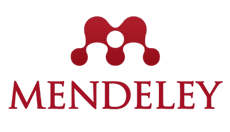The Importance of the Theory of Pragmatic Truth on the Development of Teacher Professionalism
DOI:
https://doi.org/10.57176/jn.v3i2.95Keywords:
pragmatics, professionalism, teacher, educationAbstract
This research aims to explain the importance of mastering concepts and knowledge of the pragmatic theory of truth. Mastering the pragmatic theory of truth will lead educators to a more intelligent and conscientious pattern of self-development. Education involves two basic components, namely: educators and students. Educators who are the spearhead of the education system must have full self-awareness of their own development. One of the self-development that an educator needs to do is develop professionalism. Teacher professionalism can be developed in many ways, one of which is developing knowledge of concepts or theories that are relevant to their field of work. One of the concepts or theories that educators need to master and develop is the pragmatic theory of truth. This research is a descriptive phenomenological analysis research. The data sources used were 26 teachers at Xin Zhong Middle School in Surabaya. This research was conducted using interview and observation techniques as a way to obtain data. The research was conducted because it was found that there were several educators who did not understand the concept of pragmatic truth which was demonstrated through the attitudes and viewpoints of educators, thereby influencing the learning and professional processes that occurred in educational institutions. This research found that the pragmatic theory of truth which is well mastered by educators will produce individuals who are more intellectual and virtuous by involving conscience as an indicator in expanding knowledge.
_________________________________________________________________________________________
Penelitian ini bertujuan untuk memaparkan pentingnya penguasaan konsep dan pengetahuan terhadap teori kebenaran pragmatis. Adanya penguasaan teori kebenaran pragmatis akan membawa pendidik ke pola pengembangan diri yang lebih berakal dan bernurani. Pendidikan melibatkan dua komponen dasar yakni: pendidik dan peserta didik. Pendidik yang merupakan ujung tombak terhadap sistem pendidikan harus memiliki kesadaran diri penuh terhadap pengembangan dirinya. Salah satu pengembangan diri yang perlu dilakukan oleh seorang pendidik adalah pengembangan profesionalisme. Profesionalisme guru dapat dikembangkan melalui banyak cara, salah satunya adanya pengembangan pengetahuan terhadap konsep atau teori yang relevan dengan bidang pekerjaanya. Salah satu konsep atau teori yang perlu dikuasai dan dikembangkan oleh pendidik adalah teori kebeneran pragmatis. Penelitian ini merupakan penelitian analisis deskriptif fenomenologi. Sumber data yang dijadikan adalah guru SMP Xin Zhong Surabaya yang berjumlah 26 orang. Penelitian ini dilakukan dengan menggunakan teknik wawancara dan observasi sebagai cara untuk memeroleh data. Penelitian dilakukan karena ditemukan adanya beberapa pendidik yang tidak memahami konsep kebenaran pragmatis yang ditunjukkan melalui sikap dan sudut pandang pendidik sehingga memengaruhi proses pembelajaran dan profesional yang terjadi di lembaga pendidikan. Penelitian ini menemukan bahwa teori kebenaran pragmatis yang dikuasai dengan baik oleh pendidik akan melahirkan pribadi yang lebih berintelektual dan berbudi pekerti dengan melibatkan nurani sebagai indikator dalam meluaskan pengetahuan.
References
Aremu, M. A. (2015). A Pragmatic Analysis of Nigerianisms in the English Usage in Soyinka’s Death and the King’s Horseman. The Journal of Pan African Studies, 8(5), 92-114.
Birner, B. J., (2013). Introduction to Pragmatics, United Kingdom: Blackwell Publishing.
Emike, A. J. (2015). The Pragma-Crafting Theory: A Proposed Theoretical Framework for Pragmatic Analysis. American Research Journal of English and Literature, 1(2), 21-32
Danim, Sudarwan. (2011). Pengembangan Profesi Guru. Jakarta: Kencana Media Grup.
Gutek, G. L. (1998). Philosophical Alternatives in Education. Loyola University of Chicago Press.
Ismaun. (2004). Filsafat ilmu. Bandung: Universitas Pendidikan Indonesia.
Kattsoff, L. O., (1992), Pengantar Filsafat, Yogyakarta, Tiara Wacana : 321.
Li, X. (2016). A Pragmatic Analysis of Humor Words in English Advertisements. English Language and Literature Studies, 6,(2), 193-201.
Muhammad Rohmadi. (2014). Kajian Pragmatik Percakapan Guru dan Siswa dalam Pembelajaran Bahasa Indonesia. Jurnal Peadagogia Vol.17 No.1. Fakultas Keguruan dan Ilmu Pendidikan. Universitas Sebelas Maret.
Olusegun Oladele Jegede. (2020). Pragmatic Reference in Elvis Gbanabom Hallowell's The Dining Table. Journal of Pragmatics Research Vol.2 No.
Priyanto, Dwi. (2017). Implikasi Aliran Filsafat Pragmatisme Terhadap Praksis Pendidikan. Jurnal Pendidikan Islam Indonesia. 1 (2), 1-14.
Power, E. J. (1982). Philosophy of education. New Jersey: Prentice-Hall. Inc.
Sabdulloh, U. (2003) Pengantar Filsafat Pendidikan. Bandung: Alfabeta.
Sopacua, Jems & Fadli, Muhammad Rijal. (2022). Konsep Pendidikan Merdeka Belajar Perspektif Filsafat Progresivisme. Jurnal Potret Pemikiran. 26 (1), 1-14.
Undang-Undang Nomor 14 tahun 2005 tentang Guru dan Dosen sebagai Tenaga Profesi.
________. 2014. “Analisis Wacana Tekstual dan Kontekstual Pragmatik Soal Cerita Matematika dalam Ujian Nasional SD”. Makalah dipaparkan dalam Seminar Nasional di UNTAN Pontianak, Kalimantan Barat, 27 Februari 2014.
Downloads
Published
How to Cite
Issue
Section
License
Copyright (c) 2024 Nensy Megawati Simanjuntak, Arumtyas Puspitaning Padmasari

This work is licensed under a Creative Commons Attribution-ShareAlike 4.0 International License.
You are free to:
- Share — copy and redistribute the material in any medium or format for any purpose, even commercially.
- Adapt — remix, transform, and build upon the material for any purpose, even commercially.
- The licensor cannot revoke these freedoms as long as you follow the license terms.
Under the following terms:
- Attribution — You must give appropriate credit , provide a link to the license, and indicate if changes were made . You may do so in any reasonable manner, but not in any way that suggests the licensor endorses you or your use.
- ShareAlike — If you remix, transform, or build upon the material, you must distribute your contributions under the same license as the original.
- No additional restrictions — You may not apply legal terms or technological measures that legally restrict others from doing anything the license permits.
Notices:
You do not have to comply with the license for elements of the material in the public domain or where your use is permitted by an applicable exception or limitation .
No warranties are given. The license may not give you all of the permissions necessary for your intended use. For example, other rights such as publicity, privacy, or moral rights may limit how you use the material.
















